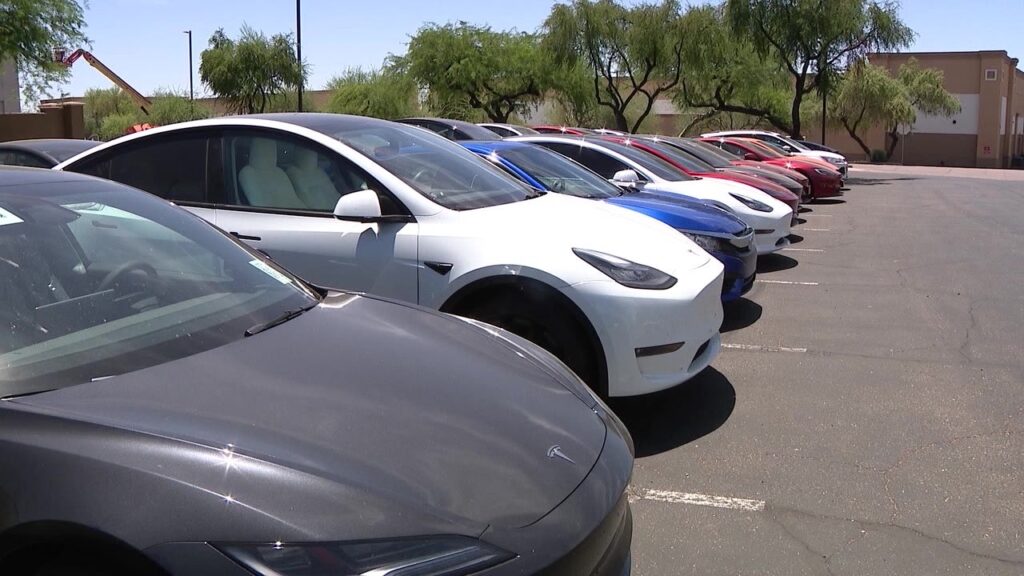Electric Vehicles Gain Traction on Arizona Roads Amid Potential Challenges
As electric vehicles (EVs) become a more frequent sight on Arizona’s roads, the state’s growing adoption reflects a nationwide trend. However, experts caution that this upward trajectory may face hurdles in the coming year. A closer look at the dynamics in Arizona reveals a complex landscape for EVs.
With over 108,000 fully electric vehicles registered out of a total 8 million in Arizona, the numbers have nearly doubled in just two years, according to the Arizona Department of Transportation (ADOT). This surge in EVs is largely driven by the popularity of Tesla, which remains the leading EV brand in the United States.
“There is nothing I don’t like about it,” said Carol, a Tesla owner, reflecting the sentiment of many who have embraced electric cars.
Between January and September 2024, Tesla reported sales of nearly 1.3 million new vehicles, with Ford following as the second-largest U.S. automaker. Tim Hovik, owner of San Tan Ford, highlights the strategic association of EVs with well-known models. “It’s not an accident that the electric vehicles that we have, have our two most iconic nameplates attached to them,” Hovik explained.
In a landmark achievement, Hovik’s dealership set a national record in the summer of 2024 for selling the highest number of all-electric vehicles among new-car dealerships in the U.S. As consumer hesitation wanes, Hovik anticipates that by 2025, a quarter of all F-150 sales will be electric or hybrid models. “In fact, we have a lot of people that come in looking at F-150 that specifically say, ‘hey, I want to drive a hybrid. I want to see what that feels like,’” he noted.
Challenges Facing the EV Market
While auto sales in the U.S. are robust, growing by nearly 8% year-over-year, skepticism about electric vehicles remains prevalent. Concerns about the high costs of EVs, which are about $10,000 more expensive than gasoline vehicles on average, deter some potential buyers. Additionally, the potential elimination of the federal tax credit for EV purchases by incoming President Donald Trump could further impact affordability.
Steve Polzin, a Research Professor at Arizona State University, advises prospective EV buyers to consider the depreciation rates of these vehicles. “The Ford products and the Tesla products have come down in price pretty dramatically. So if you were one of the buyers a year or two ago, you’re underwater on those vehicles,” Polzin stated.
This financial aspect may explain why 43% of new EVs are leased rather than purchased. Leasing offers flexibility as EV technology and battery capabilities continue to evolve. Range anxiety and the availability of charging infrastructure also contribute to consumer hesitancy, as many EV owners retain a gasoline vehicle as a backup.
Mark, a recent Cybertruck buyer, shares this sentiment. “I do sometimes think about what if I can’t charge this or get to a charge, or what if electricity goes out, so we still did want to have a gas car,” he said.
Polzin encourages thorough research for those considering an EV purchase. “Make sure you understand what’s available, what the cost situation is, what’s going to be available in the near future, and then make those decisions. Certainly look at the buy versus lease option as well,” he advised. Ryan, an EV owner, echoed this advice: “Definitely do your research. Understand what type of driver you are. If you do a lot of driving long distance, I would not necessarily recommend an EV car right off the bat.”
Cars and Trucks
Arizona
News
Original Story at www.fox10phoenix.com
